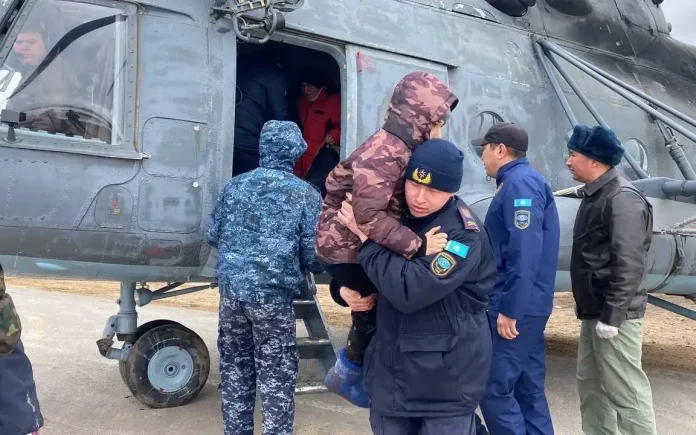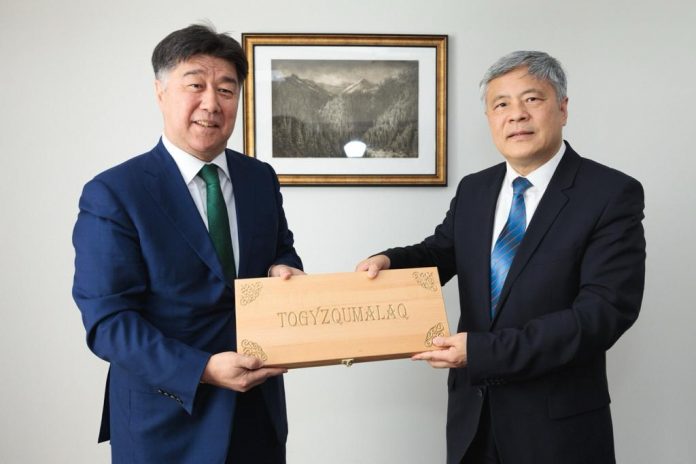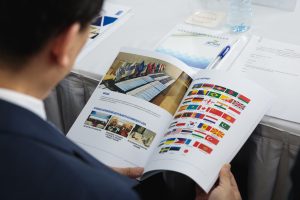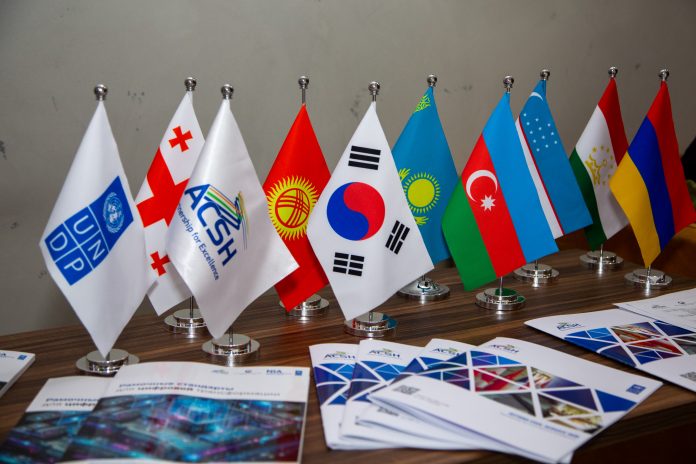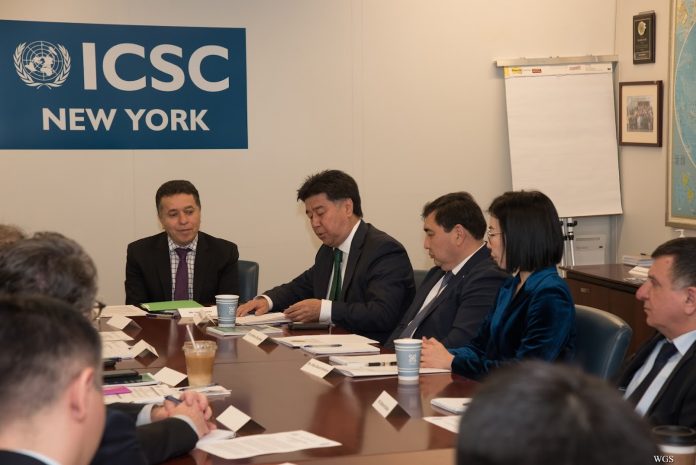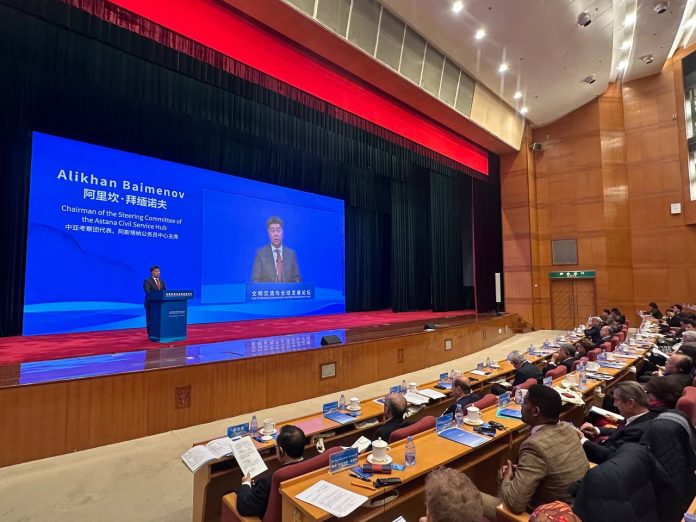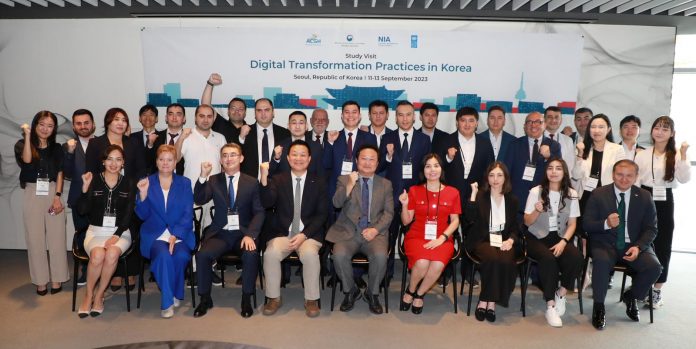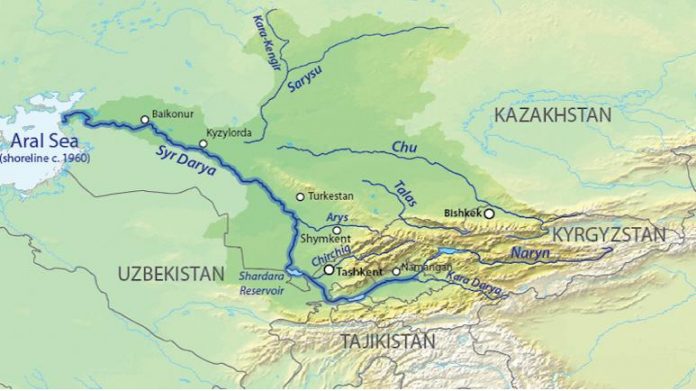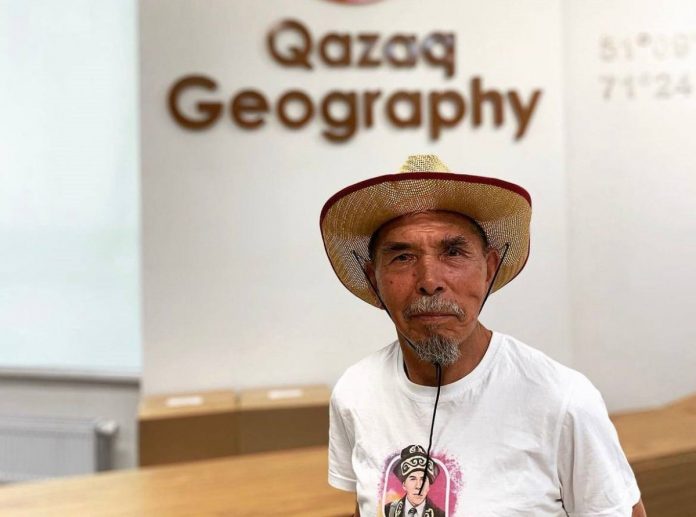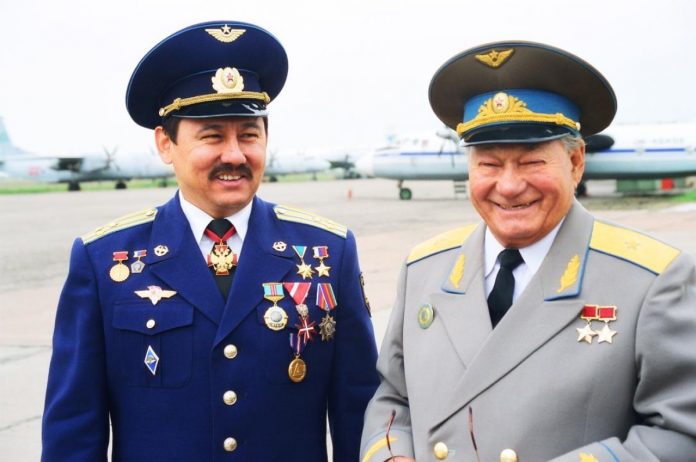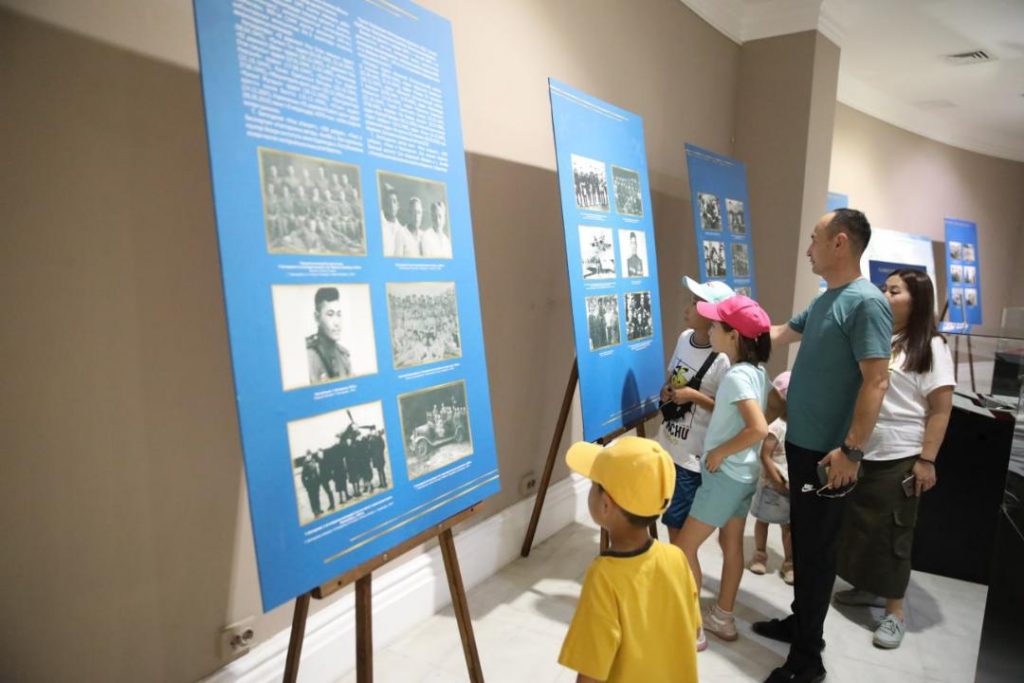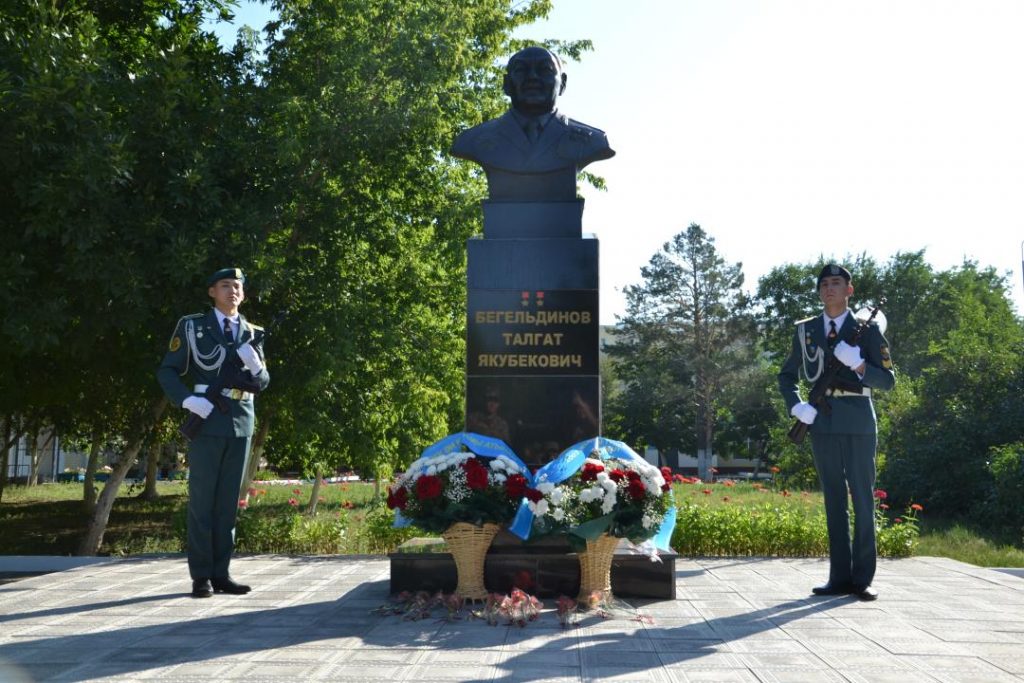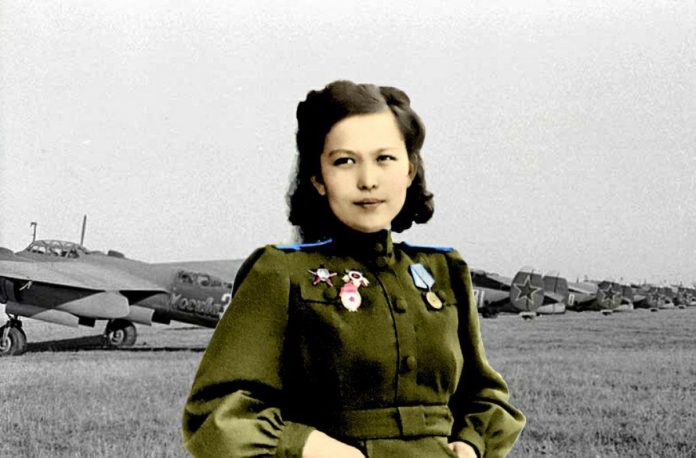All Central Asian countries, China, and the Russian Federation adhere to strict water policies, which increases direct water security risks.
A huge area of southern Kazakhstan depends on the transboundary rivers Chu and Talas originating in the Kyrgyz Republic, and water supply problems in this region are becoming increasingly complex. Also, the operation and maintenance of dams and reservoirs that regulate the flow of these rivers are under Kyrgyz control. This gives the Kyrgyz Republic significant potential leverage over the downstream countries. The problem of transboundary rivers and equitable distribution of water resources in the Central Asian region is becoming more and more relevant every year and raises the objective concerns of the expert community about the risks of its conflict potential in the near future.
In addition, global climate warming, reduction of water resources, shortage of water for irrigation of agricultural lands, degradation of bio-ecosystems, as well as low water availability in the river basins of this region (Syrdarya River, Aral Sea, Shardara Reservoir, Chu-Talas Basin, Arnasay Lake System, etc.) should be taken into account. The shortage of water for irrigation in the south of Kazakhstan has caused a public outcry. Moreover, recently, Kazakh and Western media have started to spread information about the aggravation of the situation in the region in the future, up to the emergence of military conflicts. In their opinion, it is water that can become a ground for discord between the brotherly peoples of Central Asia.
Dushen Mamatkanov, a major Kyrgyz scientist in the field of engineering hydrology and hydropower and author of more than 200 scientific papers on transboundary rivers and water allocation in Central Asia, expressed his belief in his 2019 interview that water is a valuable resource that can be used as leverage if necessary. “Water is also a natural resource like gold, iron, oil, etc. Because water doesn’t just flow like that. Costs are incurred, so water has a value. Water should be a commodity. Moreover, it is a strategic commodity and a political commodity. When necessary, we can put pressure on something else. But we can’t push. These issues have to be dealt with. This is for the time being…”
He also argues that signing the international convention “Rational use and protection of transboundary rivers” was nonsense. “The so-called Helsinki Convention, which stipulates that “the use of transboundary natural resources should be carried out in such a way that the needs of the present generation are fully satisfied without prejudice to the needs of the future generation”. What does it mean? I have water; I am the owner. We all signed this document, and as water becomes more common, everyone has the same rights. This is stupidity. Kyrgyzstan has not been developing, and we need to develop. To develop, we need additional water. And then there will be a scandal. A war will start. Wars mostly happen because of water”.
Canadian researcher Robert M. Cutler notes in the Asia Times that Kyrgyzstan is trying to blackmail Kazakhstan with water to force it to participate in a dubious scheme to supply dual-use goods from China to Russia. According to him, Kyrgyzstan is using its control over water resources to try to force Kazakhstan to participate in the violation of sanctions against Russia. Official Astana, meanwhile, is concerned that the adoption of secondary sanctions will harm the country’s economy and is doing everything possible to comply with international legal norms. The author emphasized that the Kazakh authorities are resisting the creation of such a route. Especially at the stage of implementation of the comprehensive reform plan of President K. Tokayev.
At present, in the water and energy sector, the relevance of rational use of transboundary river resources is becoming one of the priority topics for discussion in the Central Asian republics. For example, in Kyrgyzstan, with the assistance of China, the Chui-2 Bypass Canal project is planned to be implemented. The official version of the reason for the construction of this canal is to reduce water loss to 400 million cubic meters per year under the existing deficit of irrigation water in the Chui Valley and to increase water supply to the land. Tilek Toktogaziev, former head of the Ministry of Agriculture of the Kyrgyz Republic, believes that those 400 million cubic meters going into the ground in the Kyrgyz Republic will eventually come to the surface in the Republic of Kazakhstan. According to T. Toktogaziev, the construction of the Chui-2 bypass canal will help save water in the Kyrgyz Republic.
Meanwhile, Timur Yeleusizov, a Kazakh public figure and ecologist, is alarmed that the upstream countries violate the established water withdrawal limits and do not fulfill the agreements on ensuring water quality, which leads to a constant decrease in river water availability, pollution, and disruption of the ecosystems of river basins and reservoirs both in the border and central regions of the Republic of Kazakhstan. Besides, according to him, when the upstream countries actively build bypass canals to irrigate their fields, accordingly, the Aral Sea is under-receiving water. This will lead to a very large release of salt with a high content of toxic substances in the form of pesticides, herbicides, and bottom sediments, which will get into the atmosphere. “The fact that the Kyrgyz Republic is damming the Chu and Talas rivers will also be a big problem for downstream countries. Because of the lack of water, biodiversity will be lost, and plants, fish, and other wildlife will disappear. Agriculture will suffer, which will undermine Kazakhstan’s food security,” the ecologist says.
Kyrgyz academician Dr. Mamatkanov claims that water in mountain rivers, on the contrary, is becoming more and more plentiful. The scientist argued his point of view primarily due to climate warming and the fact that water is not used, including due to the collapse of the USSR and the collapse of collective and state farms, which were the main consumers of this resource. According to him, under the USSR, one of the most acute problems was rice and cotton dependence. After World War II, the USSR’s economic performance was poor, and in order not to buy these crops abroad, they decided to grow them at home. These industries were developed in Central Asia: in Uzbekistan, Kazakhstan, and Turkmenistan. At the same time, water for irrigation is formed mainly in mountainous areas: in Tajikistan, 65 billion cubic meters, and in Kyrgyzstan, 50 billion cubic meters of water per year.
The opinion of European expert Stefanos Xenarios, a researcher in the field of natural resources management, environmental policy, and hydroeconomic modeling of water resources, coincides with the opinion of Mamatkanov, who also admits that due to glacier melting, the volume of water in rivers should become larger. He argues that climate change is the main factor. But with climate change, the amount of water does not decrease immediately. The problems start over time. After 10–15 years, the amount of water will start decreasing. This will affect agriculture. Especially in Uzbekistan, where more than 90% of the economy is connected with agriculture.
Answering the question, “Why then is the Kyrgyz Republic trying to block the rivers and prevent the flow of such a vital resource to the downstream countries?”, the hydrologist explained that now neighboring states use water from transboundary rivers just as they did in Soviet times and do not pay compensation for it. The Kyrgyz Toktogul reservoir alone irrigates 1,300,000 hectares of farmland in Kazakhstan and Uzbekistan, he said. And to give those countries extra water for irrigation, the Kyrgyz flooded 28,000 hectares of their land that remained under the reservoir. This is a village, a district center, and an irrigated area; in addition, local residents were resettled. Now, these places do not provide agricultural products. He estimated that the Toktogul district is missing out on $10 million a year in agricultural products, and Kazakhstan and Uzbekistan should compensate. “These countries give nothing in return. From Toktogul, the Kyrgyz use only 2% of the Naryn River. We are now a sovereign state. Water is our property and our wealth,” the scientist asserts.
In general, it can be concluded that the upstream countries violate the established water withdrawal limits and do not observe agreements on water quality. This leads to a constant decrease in river water availability, pollution, and disruption of river basin ecosystems and reservoirs, both in the border and central regions of Kazakhstan and Uzbekistan. In parallel with these processes, the growth of tariffs for water supply is fixed. Together, these factors entail such irreversible consequences as depletion and pollution of water resources, reduction of fish stocks, decrease in productivity of pastures and irrigated lands, loss of biodiversity and bioresources, increase in desertification, and increase in financial costs of water supply.
At present, the solution to this problem requires a comprehensive approach, including, first of all, the introduction of fundamental changes in the negotiation process on transboundary water use, including constant information support and coverage of the current situation in the context of each country in the region. Taking into account the above-mentioned circumstances, the initiative to establish a working group and the Interstate Water and Energy Consortium of Central Asia, including improvement of the organizational structure and contractual and legal framework of the International Fund for Saving the Aral Sea (IFAS), becomes relevant.
Over the past few years, the geopolitical, economic, and environmental situation in the world has changed. Critical, radical judgments and egoistic ideas have become a relic of both the common Soviet past and the borderless “noughties,” in which historical and good-neighborly relations were devalued in favor of a process of transition to wild capitalism—making money out of everything and everyone. The corresponding collateral damage of any process of change was the loss of the matrix of trust and mutual assistance with the crossing of “red lines”, including the fine line between conscience and honor.
In order to prevent the water issue from turning into water discord, it is necessary to encourage the public in the region to search for a mutually beneficial solution to this problem. Careful use of water resources and reasonable water policy in upstream countries will allow to save the rivers of southern Kazakhstan and Uzbekistan from shoaling, control the consequences of the Aral Sea catastrophe, and reduce the stress load on farmers.
Source: Eurasia Review
Author: Nurzhan Koshken

